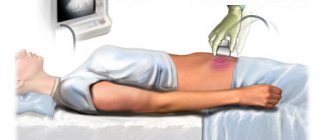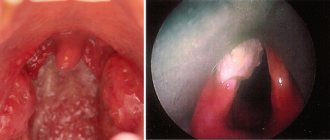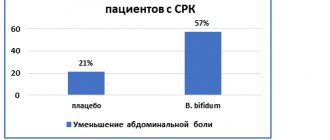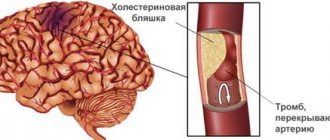Menopausal syndrome
in women it is a whole complex of symptoms that arise during menopause against the background of declining reproductive function.
- Menopausal syndrome
- Symptoms
- Our services
- Our doctors
- Price-list
- Analyzes
- Make an appointment
These symptoms complicate the normal (physiological) course of the menopause due to the following reasons:
- too sharp a decrease in estrogen production,
- mismatch in the functioning of the endocrine system,
- the presence of concomitant diseases and conditions that affect the course of menopause (gynecological diseases and past abortions, autonomic disorders, endocrine pathology, cardiovascular diseases, psychological discomfort, traumatic brain injuries, etc.).
After menopause, climacteric syndrome is observed 1.5-2 times more often than in premenopause. Its typical symptoms are especially common in the first 2-3 years of postmenopause.
Menopausal syndrome, symptoms
During menopause, a woman may experience a number of unpleasant sensations. Symptoms can vary in intensity and be present in different combinations. They are divided into several groups.
Neurovegetative symptoms:
- tides;
- sweating;
- changes in blood pressure;
- chilling;
- nausea, abdominal pain;
- dizziness, headaches;
- heartache;
- palpitations.
Metabolic-endocrine symptoms:
- swelling, weight gain;
- engorgement of the mammary glands, mastopathy;
- flatulence;
- vaginal dryness, spotting, bleeding;
- skin atrophy, itching;
- urinary incontinence, painful urination;
- pain in bones and joints;
- increased blood cholesterol levels.
Psycho-emotional symptoms:
- irritability;
- decreased libido;
- sudden mood changes;
- tearfulness;
- aggressiveness;
- anxiety;
- depression, apathy;
- forgetfulness, deterioration of concentration;
- insomnia;
- inexplicable sensations (tingling, goosebumps, etc.).
Hot flashes during menopause
The most constant and early symptom is hot flashes during menopause - periodically occurring redness of the skin and a feeling of heat in the face, neck, and chest. Hot flashes are often accompanied by sweating, headache, palpitations and insomnia. Based on the number of hot flashes per day, the following forms of menopausal syndrome are distinguished:
- mild - up to 10 hot flashes per day,
- average - 10-20 hot flashes with characteristic symptoms,
- severe - over 20 hot flashes and other pronounced manifestations.
It should be noted that the variety of symptoms of menopausal syndrome is often due to a psychosomatic component, in particular, the anxious attitude of the woman herself to the changes occurring in her body. Therefore, with competent help from a psychotherapist or psychoneurologist, many manifestations of menopause can be mitigated even without medications.
Menopause affects microflora
An age-related decrease in the level of female sex hormones also negatively affects the vaginal microflora . Beneficial lactobacilli are especially sensitive to a decrease in the natural level of estrogen - they simply disappear . As a result, lactic acid ceases to be produced. The acid-base balance in the vagina (pH) is disrupted. As a result, the vaginal environment becomes dry and, accordingly, favorable for the occurrence of various genital infections . Let's look briefly at the most famous and common ones.
Thrush. In medicine, this disease is called candidiasis, named after the opportunistic yeast-like fungi of the genus Candida albicans, which are its causative agents. The disease can affect the mucous membranes of the mouth, intestines, and nails, but is more common in the genital area (including men). Female thrush is manifested by burning and itching in the genital area, white, curd-like discharge from the vagina, pain during sexual intercourse and urination.
Gardnerellosis. Or, in other words, bacterial vaginosis. The disease is quite common among women, representing vaginal dysbiosis. Under normal conditions, the basis of the vaginal microflora is lactobacilli (they are also called lactobacilli, Lactobacillus spp.). They convert glycogen contained in the vagina into lactic acid and also produce hydrogen peroxide. Both of these compounds suppress the activity of opportunistic microflora, namely streptococci, staphylococci, anaerobic bacteria, E. coli and Gardnerella vaginalis itself. It is she who first begins to take a leadership position if the level of lactobacilli decreases. Bacterial vaginosis causes a grayish-white vaginal discharge that smells like rotten fish. Gardnerellosis, if it occurs during menopause, can provoke inflammatory diseases of the uterus and appendages, namely endometritis, myometritis, endomyometritis, salpingitis, oophoritis and others.
Discharge during menopause
During premenopause, menstruation gradually loses its former regularity: it may occur later or earlier than expected. Their intensity changes - and it can either decrease or increase. Occasional intermenstrual discharge is possible - light, “spotting”, brownish in color.
So-called menopausal bleeding, associated with impaired production of sex hormones, develops in women aged 40-50 years, before menopause. Typically, such bleeding begins after a missed period, but it may coincide with the expected period or even begin a little earlier. It differs from regular menstruation in its long duration - up to several weeks.
The intensity of such bleeding may vary and may be repeated. Sometimes they are quite abundant, even threatening health and life.
Menopausal bleeding requires treatment in a hospital, usually responds to hormone therapy, but surgery may also be required. As a rule, diagnostic curettage is required to clarify the diagnosis in such cases. This is necessary in order not to miss possible hyperplasia (overgrowth) of the endometrium, its polyps and other conditions that are also manifested by uterine bleeding. Treatment tactics will depend on the correct diagnosis.
Uterine bleeding that occurs in postmenopause is much more dangerous, as it often indicates a serious illness. For example, spotting in a woman not receiving hormone replacement therapy that occurs several years after menopause can be caused by uterine cancer or ovarian tumors. In this case, it is necessary to undergo a thorough medical examination as quickly as possible with mandatory separate diagnostic curettage of the mucous membrane of the cervix and body of the uterus. Early diagnosis allows for timely successful treatment.
When does menopause start?
Menopause is usually preceded by what is called perimenopause . It usually begins around age 50 . A characteristic feature of premenopause is a decrease in the number of eggs to a minimum . Thus, the onset of this stage indicates a natural decline in ovarian function . During this period of life, a woman feels the onset of changes in her general well-being, and delays in the menstrual cycle begin . The onset of menopause, as well as pregnancy and ovulation, is determined by a special test. But it is appropriate if irregular periods have been occurring for six months.
Interruptions with menstruation ultimately lead to the complete disappearance of menstruation, which indicates the end of the premenopausal period and the onset of menopause itself . This period lasts, as a rule, two years . But there are many cases where nature stretched it out to five years. With the onset of menopause, a completely new stage begins in a woman’s life. From a social point of view, it can be great: ladies rejoice at the success of their children, happily nurse their grandchildren, and they have more time for their family and social responsibilities. However, from a health point of view, things are not so smooth. This is all due to the notorious hormonal changes in the body. Sometimes it is so radical that it cannot be called anything other than revolutionary.
Changes in the mammary glands during menopause
The hormonal changes that occur in a woman’s body during menopause, of course, also affect the condition of the mammary glands. Many women experience painful tension (“engorgement”), especially in the area around the nipples. Sometimes in the thickness of the glands, palpable small painful nodules either disappear or reappear.
This is not necessarily breast cancer, and yet with such manifestations it is necessary to see a doctor. Only a thorough examination, including mammography and other examination methods, will help determine whether these formations are tumorous.
There is no pregnancy, but my periods are strange - how to explain?
Everything is very simple. Every woman is individual inside and out. No, the organs are the same, and the process is similar, however, its course has variations. Check out the main ones:
- menstruation stops abruptly, then returns after three months. Then they go on for about a year with the indicated frequency, after which they disappear completely;
- menstruation becomes chaotic. Delays of 4–5 months are replaced by short bleeding once every 2–3 weeks. At this rate, perimenopause lasts more than a year;
- The discharge stops suddenly and then never comes. Sometimes there is weakness, hot flashes, however, nothing else reminds of the menopause. In 3% of cases, women have no symptoms at all;
- the cycle changes smoothly. Every month, periods are postponed by 20-30-50 days. The discharge is slight or normal. There are almost no symptoms of menopause. The entire process is completed in two years.
Urinary incontinence during menopause
Urinary incontinence is a fairly common manifestation of menopausal syndrome. The fact is that the work of the bladder, urethra and the tone of the pelvic floor muscles depend on the level of estrogen in the body. And their deficiency can lead to weakening of the muscles responsible for urinary control. The following violations may occur:
- stress urinary incontinence - involuntary leakage of a small amount of urine during sudden movements, jumping, lifting heavy objects, coughing, sneezing, laughing;
- Urgent (induced) urinary incontinence, in which the muscles of the bladder contract untimely, which causes the involuntary release of a large amount of urine (an irresistible urge is felt, the woman simply does not have time to run to the toilet);
- pain, burning when urinating;
- frequent urination, the need to urinate even several times a night.
We must also not forget that the cause of urinary dysfunction in women in adulthood can be not only menopause itself, but also urinary tract infections. Age-related weakening of the sphincters contributes to their occurrence. The condition of the urinary tract can also be affected by concomitant diseases, such as diabetes mellitus, cerebrovascular accidents and many other factors.
Urinary problems should not be accepted as an inevitable part of aging. You should not hesitate to discuss this problem with a gynecologist and urologist, and also undergo a detailed examination of the pelvic region and urinary system. Specialists will help you find out the true causes of problems and suggest ways to solve them.
Typically, for urinary incontinence, the following are recommended:
- strengthening the pelvic muscles using Kegel exercises, which are based on prolonged contraction and subsequent relaxation of the pelvic floor muscles;
- “training” of the urinary tract using special simulators;
- limiting caffeine consumption;
- fight against excess weight;
- biofeedback method, electrical stimulation of the pelvic muscles;
- drug therapy, local use of hormones;
- surgical intervention.
Popular questions
Hello, hot flashes have begun, mood changes have begun, (menopause) the uterus has been removed due to mime.
What can you take in combination with vitamins to reduce this condition? You can start taking Ginocomfort climafemin 1t once a day for 3 months to relieve vegetative storms.
Hello, burning sensation in the vagina, menopause, the doctor prescribed Levomekol ointment, what else can I use?
Hello! In your case, you can use Ginocomfort gel with mallow extract, 1 dose 1 time per day for 10 days, and then 2 times a week for a long time. This product contains herbal components, bisabolol and panthenol, which will moisturize and restore the mucous membranes of the genital tract. In the absence of contraindications, it is possible to use estriol-containing drugs, for example Ornion cream, which will be etiotropic therapy.
Hello! Surgical menopause, breast cancer in 2011. I suffer from vaginal dryness, periodic cystitis and constant vaginitis after each sexual intercourse. What prevention methods are possible? After every contact?
During menopause, you can use products that do not contain hormonal components. In the Gynocomfort line, this requirement is met by a gel with mallow extract. This will help not only moisturize the mucous membranes, but also restore elasticity and aid in regeneration. The gel can be used both before contact and as needed without a time limit.
Hello, I’m 47 years old, menopause has been going on for 5 years now, at 42 it ended and that’s it, at first I didn’t take anything, the condition worsened, hot flashes and mood swings, poor sleep. 3 years ago, on the doctor’s recommendation, I took Femoston 1/5 for a year. I took it for 1 year, felt good, stopped taking it, after all, it’s hormones, now I feel bad again. hot flashes, increased blood pressure, palpitations, poor sleep, hot flashes mainly at night and depression, tell me Ginocomfort Klimafemin could help me or should I take Femoston again?
Hello!
At this stage, you can start by taking Gynocomfort climafemin. This will improve your well-being and you will have time to conduct additional examinations before resuming menopausal hormone therapy, if necessary: pelvic ultrasound, mammography, lipid spectrum, general blood test, TSH level, consultation with a therapist and obstetrician-gynecologist, smears for flora and oncocytology. For an accurate diagnosis, contact a specialist










